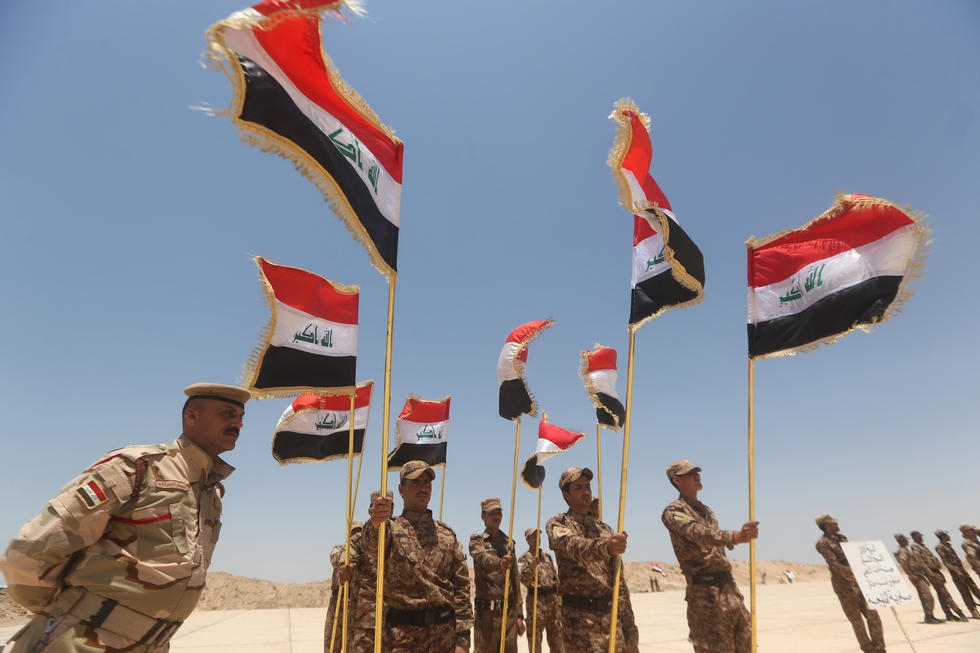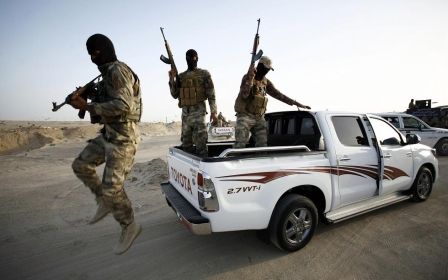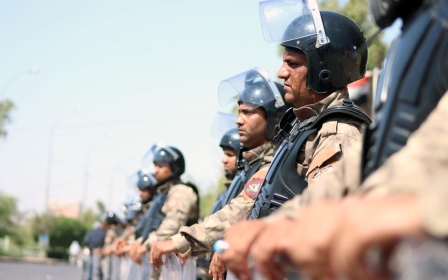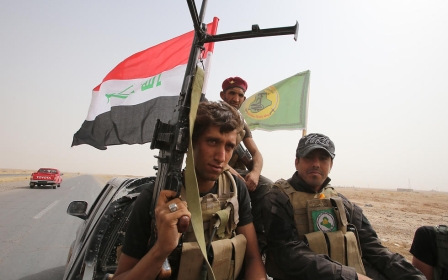Militias 'greater threat' to Iraq's unity than Islamic State: Petraeus

Former senior US military figure General David Petraeus has warned that Iraq’s volunteer militias may be more of a threat to the country’s unity than Islamic State.
In his first interview with an Arabic-language newspaper, Petraeus told the London-based daily al-Sharq al-Awsat that all of Iraq’s armed forces must answer to the government under the leadership of President Haider al-Abadi.
Petraeus, the former CIA director and retired army general who headed the 2007 counter-insurgency operation during the US-led occupation of Iraq, said Islamic State is not the biggest threat now facing that country.
“These [volunteer] militias could be a greater long-term threat to Iraq’s unity than Islamic State,” the group that has left huge swathes of the country depopulated after civilians fled their advance in major cities like Tikrit.
“We should worry about the Shia militias if they do not acknowledge the authority of the state.”
Iraq’s Popular Mobilisation Forces, the group Petraeus referred to, is a state-sponsored umbrella organisation of some 40 militias. It was formed in June 2014 to counter the rapid advance of IS.
The majority of the volunteers are Shia Muslims – hundreds of thousands of young men originally signed up to the anti-IS fight after Grand Ayatollah Ali al-Sistani, the most revered Shia spiritual leader in Iraq, called on citizens to take up arms for the “holy purpose” of defending the country and its holy sites.
Since its establishment, the original volunteers have been joined by thousands of Sunni fighters, with a Sunni commander last week telling Middle East Eye that he is prepared to “ally with the devil if it meant getting rid” of IS.
However, the forces have not been able to shake off concerns that their mobilisation could heighten sectarian tensions, and the volunteer forces have been accused of committing wide-ranging human rights abuses in Sunni-dominated areas.
Human Rights Watch in March documented testimony from civilians in Amerli, a town in Salah al-Din province, who said homes and businesses owned by Sunnis were looted and burned by the militias following the end of an IS siege there.
In May, the Iraqi government was forced to change the name of an operation to retake the largely Sunni province of Anbar after accusations of sectarianism.
The operation was originally code-named “At your service, Hussein,” in reference to Prophet Muhammad’s grandson, who is revered by Shia Muslims as the rightful successor to the Prophet.
However, the name was changed after the influential Shia cleric Muqtada al-Sadr warned that it would be “misunderstood for sure,” and could “flare up the situation”.
Iraqi security forces are still gearing up to launch the operation, now known as the Battle for Ramadi after the provincial capital of Anbar province, which was overrun by IS late last month.
In his wide-ranging interview, Petraeus said that, although the Popular Mobilisation Forces had “saved” Baghdad, the group’s leaders “know that the population of Ramadi and Mosul will not welcome them”.
Petraeus said in April that he looked forward to “continuing to serve our great nation as a private citizen,” after a judge sentenced him to two years’ probation for sharing classified documents with his biographer and lover, Paula Bradwell.
Since then, Petraeus has remained an influential figure in the media, frequently commenting on military strategy in Iraq. He now works with KKR, the multinational private equity firm.
New MEE newsletter: Jerusalem Dispatch
Sign up to get the latest insights and analysis on Israel-Palestine, alongside Turkey Unpacked and other MEE newsletters
Middle East Eye delivers independent and unrivalled coverage and analysis of the Middle East, North Africa and beyond. To learn more about republishing this content and the associated fees, please fill out this form. More about MEE can be found here.




